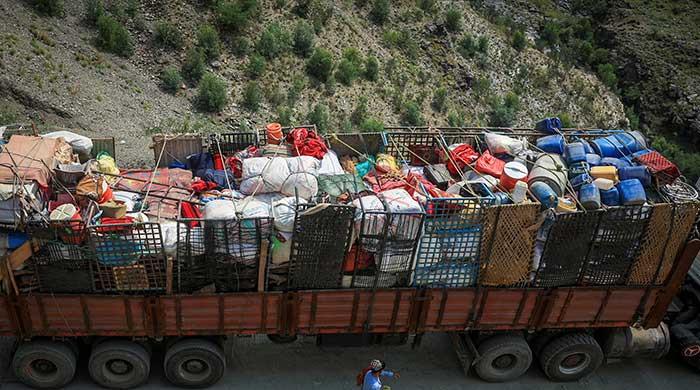UN Refugee Chief Urges Pakistan to Halt Afghan Refugee Expulsions After Earthquake
Following a devastating earthquake in eastern Afghanistan that resulted in nearly 1,500 fatalities, the UN refugee agency is calling on Pakistan to suspend its mass expulsion of Afghan refugees.
Filippo Grandi, the UN High Commissioner for Refugees, communicated on X, “Considering the present circumstances, I urge the Government of Pakistan to temporarily halt the implementation of the Illegal Foreigners Repatriation Plan.” He cautioned that those being compelled to leave are “returning to a region severely impacted by disaster.”
His plea unfolded as rescue personnel encountered difficulties in reaching survivors after the magnitude-6.0 earthquake struck the mountainous border region near Pakistan on late Sunday, causing the collapse of mud-brick residences while families were asleep.
Authorities from the Taliban government reported 1,469 deaths and over 3,700 injuries, with more than 500,000 individuals affected – marking one of the country’s most devastating earthquakes in recent decades.
For over forty years, Pakistan has provided refuge to Afghans fleeing conflict, from the Soviet invasion to the Taliban’s takeover in 2021. Some refugees have spent their entire lives there, while others have been waiting for resettlement in other nations. Afghan communities have experienced differing degrees of stability, including opportunities for employment and education.
However, citing a surge in militant activities and insurgent operations, Islamabad initiated a crackdown in 2023 to expel Afghans, branding them as “terrorists and criminals.” Since then, over 1.2 million Afghans have been forced to return, including over 443,000 this year alone, according to UN data.
The initiative has recently concentrated on an estimated 1.3 million refugees possessing Proof of Registration (PoR) cards issued by the UNHCR, with a September 1 deadline mandating their departure or facing arrest and deportation.
UNHCR spokesperson Babar Baloch informed reporters in Geneva on Tuesday that the agency is “preparing for significantly increased returns in the coming days” as a result of the deadline.
Border officials indicate a notable increase in crossings since the deadline’s expiration. According to local administrator Habib Bangulzai, more than 4,000 individuals have departed at the Chaman crossing. In Spin Boldak, located on the Afghan side, migrant registration official Abdul Latif Hakimi reported that approximately 250 to 300 families have been returning daily since August 31.
At the Torkham crossing further north, over 6,300 PoR holders returned on Tuesday alone, with almost 63,000 PoR cardholders recorded entering Afghanistan since April. UNHCR data reveals a surge in crossings between August 24 and 30, with 25,490 returnees, including 13,525 PoR holders.
Analysts suggest the evictions are intended to exert pressure on Afghanistan’s Taliban administration, which Pakistan accuses of harboring militants responsible for an increase in border attacks. The Taliban refutes these accusations.
Grandi noted that aid from donor nations, including Pakistan, remains “essential and appreciated” as Afghanistan manages the earthquake’s aftermath.



Comments (0)
No comments yet. Be the first to comment!
Leave a Comment